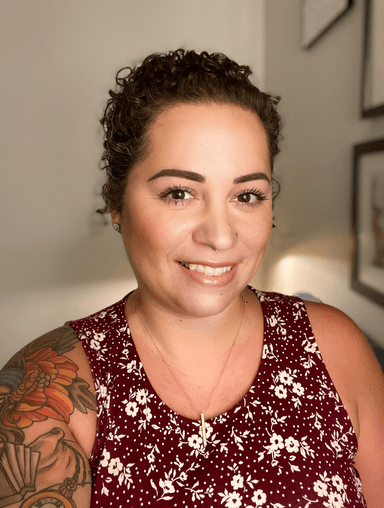
As brokers, you know that running a successful office isn’t just about transactions and commissions. It’s about people—helping agents perform at their best, collaborate effectively, and stay engaged for the long haul.
That was the message imparted at leadership expert Melissa Majors’ presentation during the September Broker Power Hour, presented by the National Association of REALTORS®. Drawing from her book Help Them Thrive, Majors shared science-backed insights and simple leadership “hacks” designed to help brokers build workplaces where agents don’t just survive—they flourish.
“We can unintentionally toxify the work environment where people just can’t thrive,” Majors says. “And if they’re not thriving, they’re not performing as well as they possibly could.”
Majors shares several practices that you can incorporate at your brokerage.
1. Connection Is a Performance Strategy
Humans are wired for connection, and work is one of the last places many people can still find it. Majors points out that while we may have hundreds of online “connections,” real-life relationships have become rarer.
“We’ve got thousands of friends on LinkedIn or Facebook, but when we go out of town, there’s nobody to feed our cat,” she says. “Warm, trusting relationships matter—and one of the best places to build them is at work.”
As a broker, fostering that connection means going beyond transactional conversations. Encourage team members to really know one another, not just as coworkers, but as people. Majors recommends structured “get-to-know-you” exercises that help agents discover shared values and experiences.
When relationships deepen, performance follows, she says.
2. Choose Curiosity Over Judgment
One of Majors’ lessons came via a clip from the popular Apple TV series, “Ted Lasso.” The clip came from the “be curious, not judgmental” scene. She says it’s a quote she lives by.
“Your brain is wired to look for patterns and threats. It takes shortcuts,” she says. “We judge people before they’ve earned our judgment.”
Her advice to brokers is to use the word “earn” as your litmus test. If you catch yourself making assumptions about an agent’s behavior or ability, pause and ask: “Have they earned this judgment, or is my brain telling me an old story?”
Curiosity can also be modeled in meetings. When conflict or misunderstanding arises, choose questions over conclusions. Majors’ rule of thumb: Seek to understand before you seek to solve.
3. Build Trust Through Peer-to-Peer Mentorship
Formal mentorship programs can be powerful—but Majors reminds brokers that mentorship doesn’t have to be complicated.
“Help your agents teach agents,” she says. “Tap into the wisdom of your top producers and let everyone learn from them.”
In practice, that could mean dedicating time during weekly meetings for agents to share how they handled a tricky negotiation or saved a deal that was falling apart. Peer-to-peer learning distributes knowledge and strengthens your brokerage’s office culture. It can also help build relationships between agents.
4. Encourage Healthy Debate, Not Hidden Conflict
Conflict avoidance, Majors warns, is one of the most common—and costly—leadership mistakes.
“Any great idea or innovation is found at the intersection of differing ideas,” she says. “When we say, ‘Let’s take this offline,’ we lose the opportunity to make better decisions.”
Instead of shutting down disagreements, reframe them as debates. She recommends using a framework from the Aspen Institute’s Better Arguments Project, which outlines five principles:
- Take winning off the table.
- Prioritize relationships.
- Pay attention to context.
- Embrace vulnerability.
- Make room to transform.
By encouraging open, respectful discussion, brokers can replace gossip and tension with trust and problem-solving.
5. Give Feedback That Sticks
For many leaders, giving feedback feels awkward, but in her presentation, Majors reminded brokers that “it’s not kind to let people trip over things they can’t see.”
She offers brokers a “brain-friendly” four-part formula developed by psychologist Leanne Renninger:
- Micro-Yes: Ask permission to share feedback. (“Do you have five minutes to talk about our last showing?”)
- Data Point: Be specific and objective. (“You said you’d follow up by 11 a.m., and I haven’t received the email yet.”)
- Impact Statement: Explain why it matters. (“Because I didn’t have it, I couldn’t finalize the listing packet.”)
- Wrap-Up Question: Invite dialogue. (“How do you see it?”)
Majors also suggests that it’s important for brokers to solicit feedback from their agents about their leadership rather than just doling feedback out. She suggests you ask your team one question regularly: “What can I do to support you even better?”
She adds: “Then zip it—and listen.”
6. Model Intellectual Humility
Every leader has blind spots, Majors says. Recognizing that fact makes you stronger.
“If you have a brain, you have blind spots,” she says. “Choosing curiosity and practicing intellectual humility—admitting you don’t have all the answers—is how you fill them.”
That mindset, she adds, is contagious. When leaders model humility, teams feel safer to share ideas, admit mistakes and keep growing.
As a broker, you shape the emotional and psychological climate of your offices. The habits you model ripple through every part of the business, and Majors suggests choosing curiosity, empathy and vulnerability.
“We need to help our people thrive,” she says. “Because when they thrive, everything else follows.”









